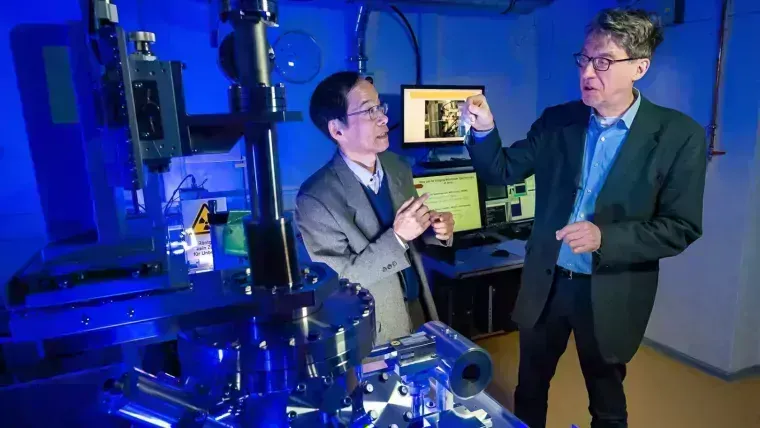
A visiting professor from Japan brings a new microscopy technique to the Friedrich Schiller University Jena
Yutaka Yoshida in conversation with Ralf Röhlsberger
- Light
Published: | By: Stephan Laudien, English translation by Gleb Chupakhin
This collaboration is special: When the Japanese Physicist Prof. Dr. Yutaka Yoshida retired, he made his ACP colleague in Jena Prof. Dr. Ralf Röhlsberger the offer to ship his modern microscopy laboratory to the Saale. Why not continue the research in Jena? Thus, the Helmholtz Institute and the Friedrich-Schilller-University Jena obtained Prof. Yoshida as a Guest Professor for two years. The microscopy laboratory from far-away Shizuoka has in the meantime begun its work at the Max-Wien-Platz in Jena.
Ralf Röhlsberger, Prof. Dr